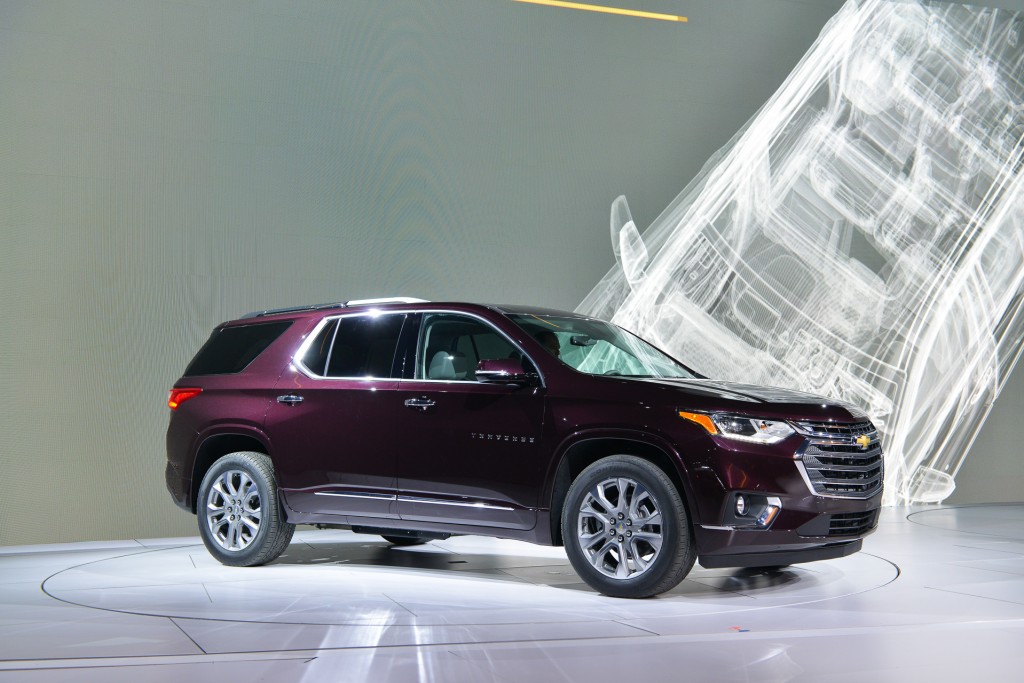Consumers all over the world, but especially in North America, are buying more crossover utility vehicles and fewer passenger sedans and hatchbacks.
The U.S. auto industry makes the bulk of its profits on light trucks, which include crossovers, pickup trucks, and even minivans.
The Trump Administration has said it wants to roll back environmental regulations.
DON'T MISS: More than half of pickup truck fuel savings come in 2022-2025 CAFE rules
Those three facts, in concert, are likely to produce a proposal from the NHTSA that gas-mileage rules for vehicles in model years 2022 through 2025 be revised.
Various news reports have suggested they could be frozen, possibly even rolled back to lower levels of fuel efficiency from earlier years of the regulations.
The latest suggestion, contained in a story published Tuesday on Bloomberg, might appear to split the difference.

2018 Chevrolet Traverse
The federal agency is not only going to review the 2022-2025 rules, adopted back in 2012 with the consent of all major automakers, but even look at the "appropriateness" of the 2021 rule.
That's something not even the Alliance of Automobile Manufacturers, a powerful industry lobbyist in the capital, had asked for.
The structure of the regulations adopted in 2012 put the bulk of the efficiency increases for heavier, less aerodynamic light trucks later in the 14 years covered by the rules than they were for passenger cars.
READ THIS: NHTSA to review gas-mileage rules: could freeze 2021 limits, even roll back (updated)
That gave domestic makers more time to prepare for changes to their most profitable vehicles, and was widely viewed as a concession to the U.S. industry that the government had just had to restructure with taxpayer funds.
But if standards are frozen at 2021 levels, or even rolled back, it would affect planned increases in fuel economy in two-thirds of the new vehicles now being sold. Passenger cars now make up only a third of overall U.S. light vehicle sales.
That means that the increase in the fleet average would be disproportionately reduced.

2018 Ford Explorer
Automakers need many years to plan, design, test, and put into production more efficient powertrains, however. As we enter the 2018 model year, plans for vehicles coming to market in 2019 through perhaps 2022 have already been solidified.
That means that fuel-economy ratings won't suddenly plummet if 2021 levels were to freeze.
The effect would simply be to let automakers build up excess fuel-economy credits they could use to offset less efficient vehicles to be introduced down the road.
CHECK OUT: Bill to give more CAFE credits to light-truck makers introduced in Congress
It's worth noting, by the way, that the full-size pickup trucks and sport-utility vehicles that keep the Detroit Three profitable are largely irrelevant in the rest of the world's vehicle markets.
Freezing standards, in other words, allows the U.S. industry's most profitable vehicles to escape the same regulation that its passenger cars and the less truck-heavy lineups of its non-U.S. competitors face.
Interesting.
_______________________________________













